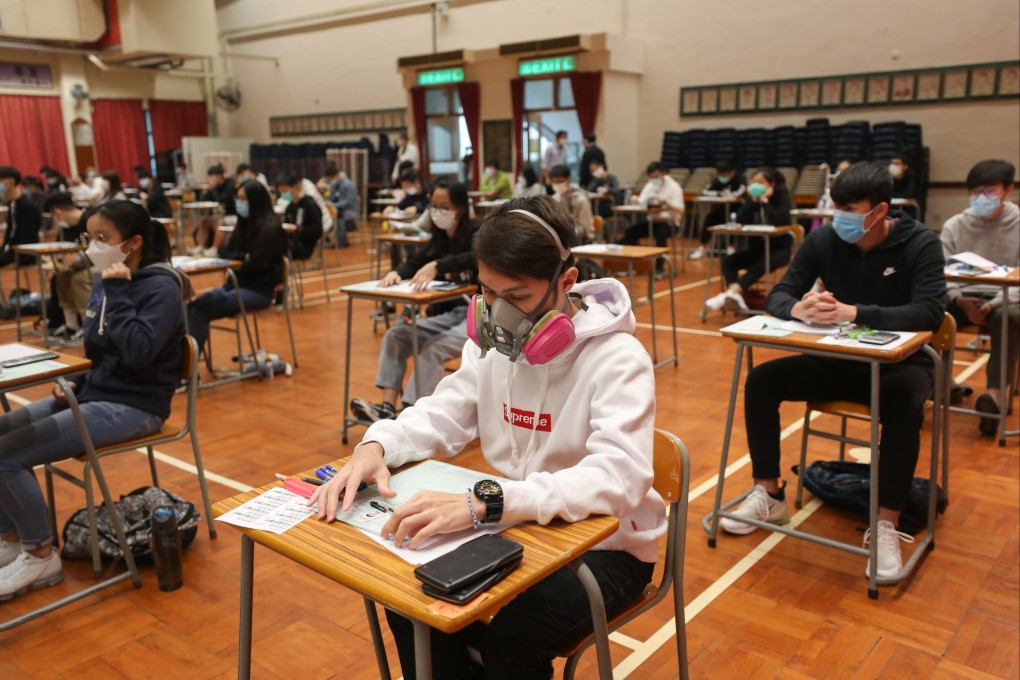Coronavirus: recovered Hong Kong teachers ‘could oversee DSE exams at special centres for Covid-19 close contacts’
- Government source says recommendations by health authorities will ‘help minimise infection risks’
- Students taking Diploma of Secondary Education Examination expected to be divided into three groups under plan being finalised by Education Bureau

Hong Kong teachers who have recovered from the coronavirus could supervise special exam centres for students deemed close contacts of Covid-19 patients, a government source has said.
But the city’s education minister said plans were still being discussed for students who tested positive using a rapid antigen test (RAT) kit on the morning of their exam day.
According to the insider, health authorities are considering dividing candidates for the Diploma of Secondary Education (DSE) exams who have been affected by Covid-19 into three groups under a plan being finalised by the Education Bureau: those who test positive a few days before the paper, those who test positive on the day of the exam, and those issued a quarantine order after being classified as close contacts.
If allowed to sit their exams, all three groups would take their assessments at different venues, the source added. “This arrangement will help minimise infection risks,” the insider said.
Last year, seven candidates who were close contacts of infected cases took their DSE exams at the Penny’s Bay quarantine camp.
But this year, a wave of infections has forced education authorities to consider examination arrangements for a far greater number of students.